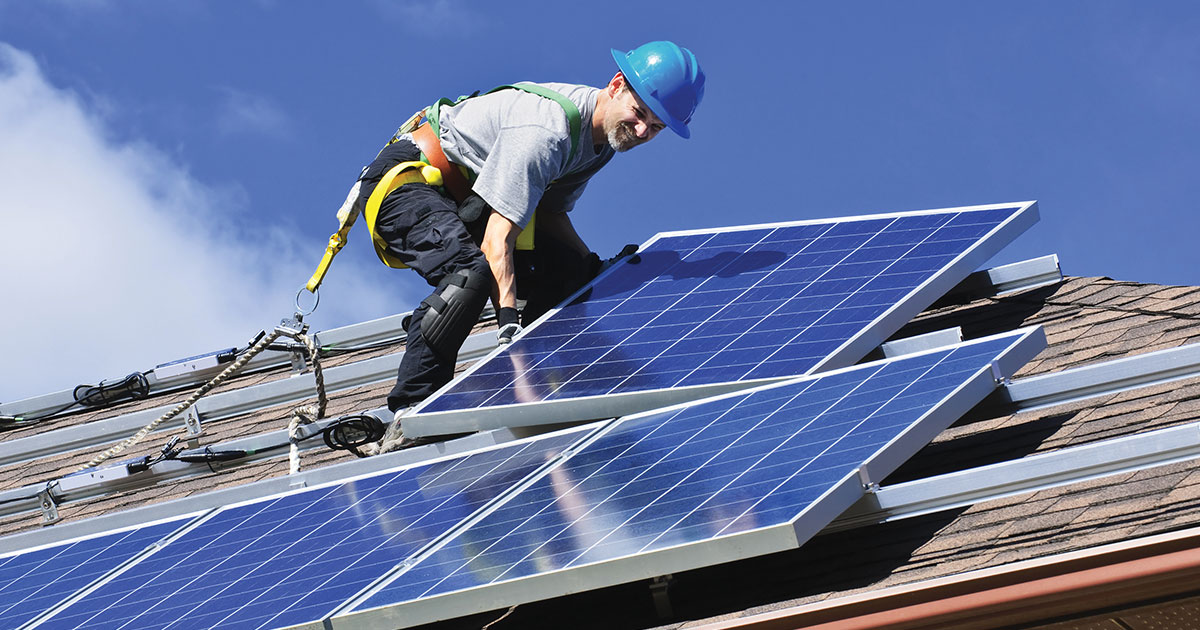Whether you plan to build or buy a home, remodel a room or seek ideas to expand your “green” footprint, we are all in the beginning stages of constructing our dreams. Each month, this column will invite you to look beyond the usual ideas and consider alternative cost-effective and eco-friendly options. With so many topics to explore from top to bottom, room to room, inside and out, the goal of a vision is to take a firm step forward and begin living the dream.
The eye-catching ad may state, “With our innovative solar program, North Carolinians can go solar without the need to provide any upfront costs. Thousands have already signed up! Click the link below to see whether your home qualifies.” You may have read similar phrasing, which promoted a feeling of curiosity and interest, especially as it alluded to government tax incentives and was supposedly virtually free to the homeowner. If it sounds too good to be true, it is. The pop-up ads are mere enticements for you to provide your name and number, encouraging a representative to call. While a photovoltaic system will reduce the monthly electric bill and offer additional financial incentives, it is wise to distinguish between the truth and the falsehoods.
Are solar panels a reliable energy source? With the rising cost of electricity, oil, and gas, it is smart to consider an alternative power source. Solar power can regulate a household’s air and water temperature and power cars and appliances.
Fact: An additional expense is required to have solar energy heat or preheat your household’s water. These systems often are designed with an electric or gas back-up water heater.
Fact: On average, North Carolina’s cloud cover ranges from 40% to 70%. In the Piedmont Triad, approximately 60% of the sun is received from sunrise to sunset, offering five hours in the summer and four hours in the winter. This implies that solar panels can still produce energy on cloudy days, but direct sunlight is necessary for optimal performance.
Fact: During the night, solar energy systems need a storage device. (It is important to inquire if your photovoltaic panels include a battery.)
Are solar panels affordable?Solar technology has been around for decades. Comparing prices since 2010, prices are roughly half the cost. In seeing solar panels in cities and on farms, in suburban neighborhoods and small towns, the decision to invest in sustainable and renewable energy makes logical sense.
Fact:While each state offers a different tax credit and incentive, the annual government tax credits, currently at 30% in North Carolina, combined with additional incentives will not pay for the system.
Fact: Most solar installation companies offer warranties for 20 to 30 years. The panels can last up to 40 years.
How can I benefit from the tax incentives? The photovoltaic system requires a licensed installer to qualify a homeowner for a solar rebate program or tax credit. In advance, it is essential for homeowners to understand the conditions of qualifying. For instance, the system may need to be installed for a defined period before the homeowner can register for the benefit.
Additionally, the federal government also has stringent conditions. If spending $30,000 for a solar panel system, 30% or $9,000 is only applicable to offset the tax liability. While the credit would assist an individual who may owe taxes, the credit itself is not a refund for cash. The condition of the law would remain in effect until it expired. Check with your tax advisor to determine the amount of your tax liability.
Fact: While incentives are available, homeowners should expect to pay the cost of the system.
Can I install a solar panel kit myself? Kits are available for purchase at one-fourth the price; however, homeowners also are responsible for additional fees such as the cost of permits and inspections to satisfy state regulations and electrical codes. Additionally, a licensed electrician will ensure the grid is wired correctly to prevent power surges and other risks such as electrocution or a house fire.
While the benefits of a photovoltaic system are numerous, establishing a trustworthy relationship with a certified company is equally as important as the decision to invest in solar power. Before making the first phone call, talk to your neighbors, endeavor to research various local companies, and determine the facts from the falsehoods!
Next Month: Security and Home Monitoring Systems






















